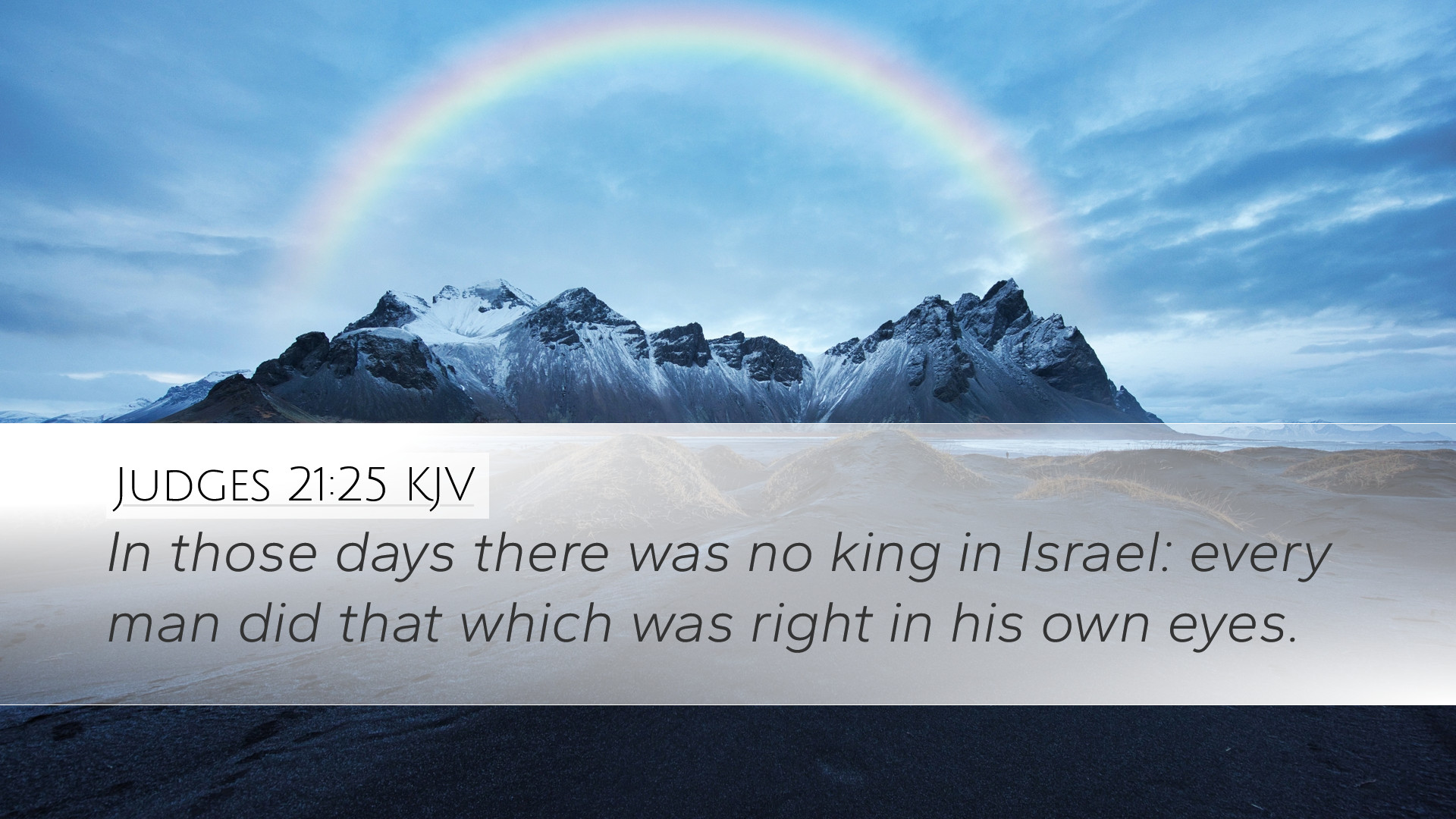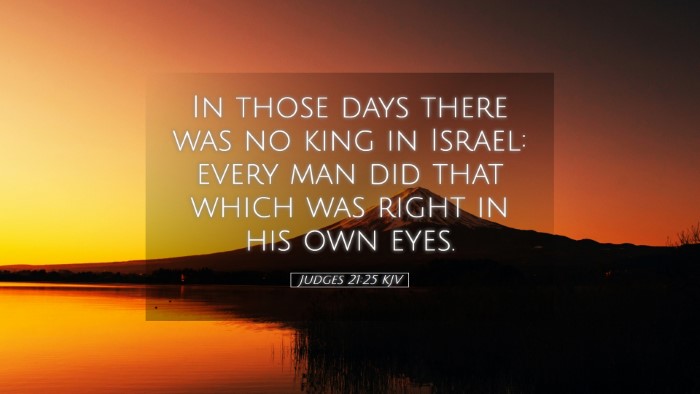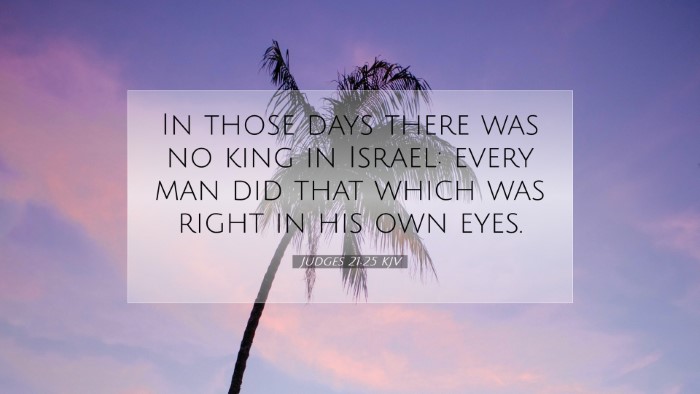Commentary on Judges 21:25
Judges 21:25 states: "In those days there was no king in Israel: every man did that which was right in his own eyes." This verse serves as a poignant conclusion to the Book of Judges, encapsulating the moral and spiritual vacuum experienced by the Israelites during this tumultuous period. Below is a synthesis of insights from notable public domain commentaries.
Contextual Background
This verse reflects the chaotic era following the conquest of Canaan, before the establishment of the monarchy. The Israelites faced a cyclical pattern of sin, oppression, repentance, and deliverance. Without a unifying leadership, they fell into spiritual anarchy. According to Matthew Henry, “The absence of a king led to every man doing what was right in his own eyes, which resulted in societal degradation.”
Theological Implications
Judges 21:25 presents profound theological implications regarding authority, morality, and human nature. Albert Barnes emphasizes that the phrase reveals a fundamental truth about the human condition; without a divinely appointed authority, individuals tend to pursue self-centered paths. This illustrates the need for divine governance — a theme that resonates throughout Scripture.
Moral Relativism
This verse also touches on the concept of moral relativism. Adam Clarke notes that when individuals judge their actions solely based on personal convictions rather than objective moral standards, society descends into chaos. “In the absence of a divine law, every person becomes their own authority, leading to disastrous outcomes,” he argues.
Lessons for Contemporary Society
The implications of this verse extend into contemporary society. Pastors and theologians may draw parallels between the Israelite's plight and the moral challenges faced today. Matthew Henry warns that ignoring God’s guidance leads to moral ambiguity. “Such relative standards of right and wrong erode communal integrity and spiritual health,” he asserts.
Call for Leadership
The call for leadership is another vital insight derived from this verse. Albert Barnes suggests that God’s people must seek righteous leaders who adhere to God’s principles. “True leadership entails a commitment to divine law, which fosters justice and order within society,” he concludes.
Need for Restoration
This verse also marks a need for restoration and a return to covenant faithfulness. Adam Clarke highlights that the cyclical nature of the Israelites’ history necessitates repentance and reliance on God’s grace. “Only through recognizing their need for divine intervention can the people restore their relationship with God,” he asserts.
Conclusion
Judges 21:25 provides an enduring reflection on the significance of godly authority and the consequences of moral relativism. As contemporary society navigates its own challenges, the lessons drawn from this verse challenge leaders and individual believers to seek divine truth amidst personal and societal confusion.
Reflection Questions
- How does the absence of spiritual authority manifest in our current cultural context?
- In what ways can we cultivate a culture of accountability and moral integrity within our communities?
- What steps can we take to ensure that our actions align with God’s will rather than subjective standards?


